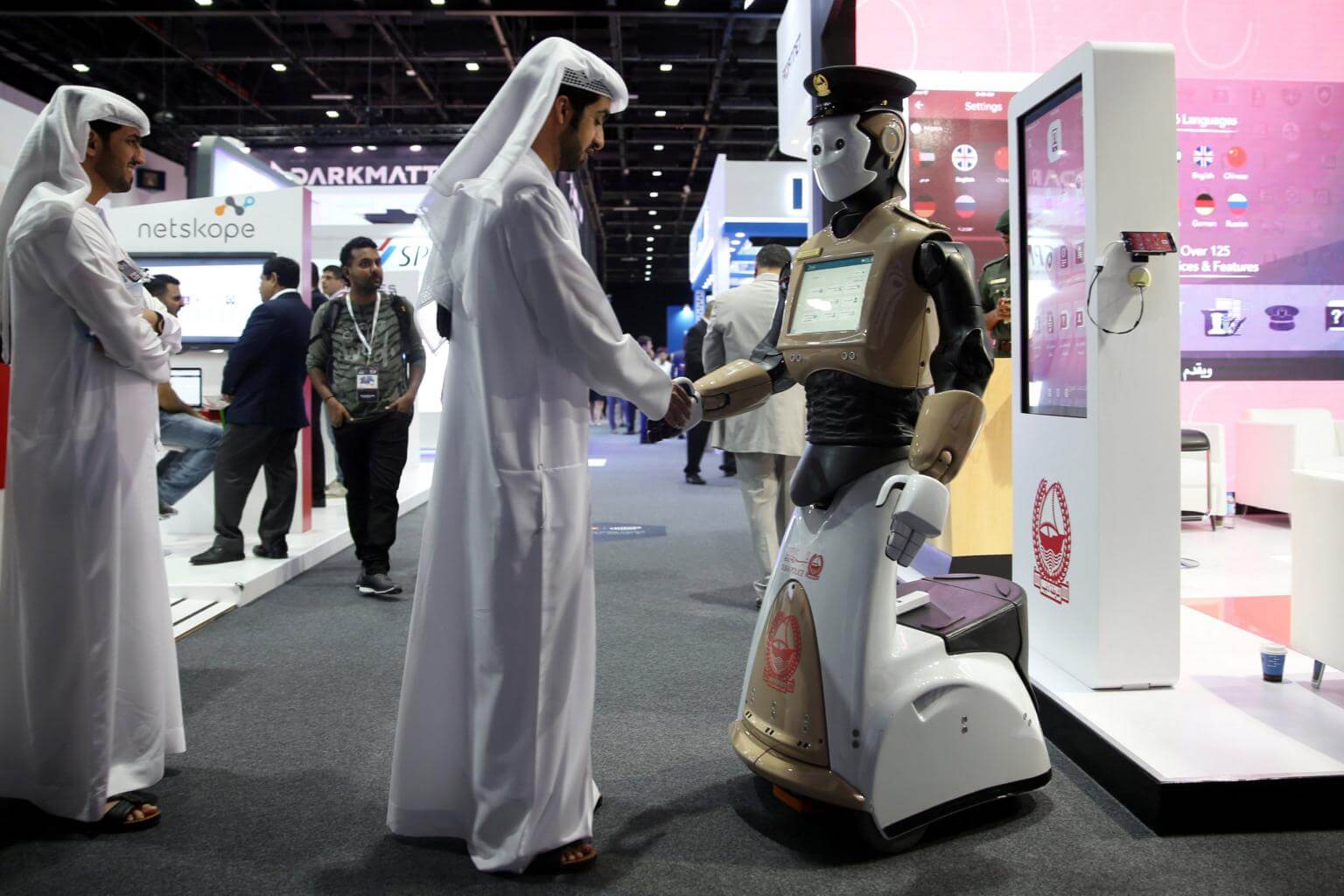Artificial intelligence plays key role in securing smart cities, but people are 'sensors' too
Sign up now: Get ST's newsletters delivered to your inbox

A visitor shakes hands with an operational robot policeman at the opening of the 4th Gulf Information Security Expo and Conference in Dubai, United Arab Emirates, on May 22, 2017.
PHOTO: REUTERS
Follow topic:
SINGAPORE - Artificial intelligence (AI) is billed as the next big thing for ensuring urban security as nations embark on smart city projects to improve urban living.
Like predictive policing in the Hollywood movie Minority Report starring Tom Cruise, law enforcement units can predict using AI where crime normally happens after collecting and analysing data from sensors and cameras, and step up patrols.
Although AI technologies today are not quite developed as the technologies featured in the movie in predicting an actual crime by a person, automation takes away the tedious work of manually scanning security cameras.
"AI can predict the probability of crime in a location by detecting anomalies and faces," said Dr Simon See, director for United States based computing firm Nvidia's AI Technology Center in Singapore.
"Predicting (actual) crime is not possible yet," said Dr See at a one-day conference on smart cities and innovation at the Lee Kuan Yew School of Public Policy on Friday (June 2).
The conference was organised by French newspaper Le Monde, in partnership with The Straits Times and Business France.
However, law enforcement is not the only user of AI.
"Hackers will also use AI to develop malware that morph and change along the way - that's the scary part," said Dr See.
That is why the Singapore Government is stepping up investments in AI to better counter cyber threats.
As much as $528 million or 22 per cent of Singapore's tech budget this year has been set aside for security - the highest ever. A huge part of the security budget will go to the first Government Security Operation Centre which features AI and analytics smarts to detect cyber threats.
It comes on the back of Singapore's aggressive digital push to improve citizens' lives and grow in the future digital economy.
Separately, the National Research Foundation (NRF) in May also launched a programme to boost the use of AI in Singapore to solve nationwide problems in fields like finance, city management solutions and healthcare.
The NRF will invest up to $150 million over five years in this new initiative, dubbed AI.SG, a cross-government initiative comprising six agencies: The NRF, Smart Nation and Digital Government Office, Economic Development Board, Infocomm Media Development Authority, SGInnovate and Integrated Health Information Systems.
But crowdsourcing intelligence from real people must not be ignored too, said Mr Muhammad Faizal Abdul Rahman, a research fellow at the Nanyang Technological University of Singapore's Homeland Defence Programme at the Centre of Excellence for National Security (CENS).
"The other 'sensors' are people," he said, citing the example of the SGSecure mobile app that enables citizens to be more involved.
Launched in September last year, the app allows citizens to report suspicious incidents or objects left unattended in public places.
The app is part of the raft of measures introduced as part of a national movement aimed at getting people to stay united in the face of terror threats, and providing training on preventing and responding to attacks.
The app can also broadcast important alerts during major emergencies.

